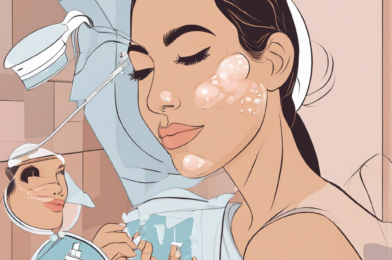Acne is a common skin condition that affects people of all ages, but it can often be a source of frustration and embarrassment for those who experience it. In this article, we will explore the multifaceted world of acne, offering insights into prevention, treatment, and aftercare strategies to help individuals gain control over their skin health and confidence.
For many people, the path to clear skin begins with understanding the root causes of acne. While various factors contribute to the development of acne, one of the primary culprits is the overproduction of sebum, our skin’s natural oil. This, coupled with a buildup of dead skin cells, can clog pores and create a breeding ground for bacteria, leading to inflammation and those all-too-familiar pimples, blackheads, and cysts.
The good news is that there are simple and effective steps everyone can take to prevent acne breakouts. Maintaining a consistent skincare routine is paramount. This includes regularly cleansing the skin with gentle, non-comedogenic products, as well as exfoliating once or twice a week to slough away dead skin cells. Choosing cosmetics and skincare products that are labeled “non-comedogenic” is key, as these products are specifically designed to not clog pores.
Additionally, adopting healthy lifestyle habits can also reduce the frequency and severity of acne breakouts. This includes eating a well-balanced diet rich in fruits and vegetables, staying hydrated, exercising regularly, and getting adequate sleep. Managing stress is also crucial, as heightened stress levels can exacerbate acne by increasing inflammation in the body.
In terms of treatment, there are a plethora of options available, ranging from over-the-counter remedies to prescription medications. For mild acne, topical treatments such as benzoyl peroxide and salicylic acid are often effective in killing acne-causing bacteria and keeping pores clear. For more severe or persistent cases, oral antibiotics or even isotretinoin (formerly known as Accutane) may be prescribed by a dermatologist to help curb excess oil production and reduce inflammation.
